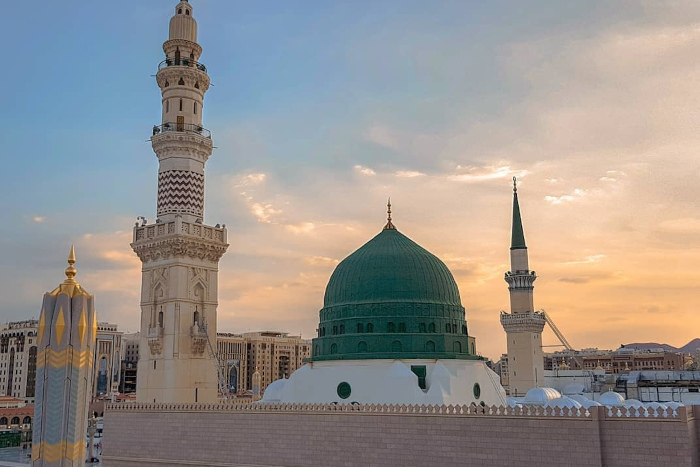
In the Qur’aan Majeed, it is mentioned that the proof for one’s claim of having love for Allah Ta‘ala is his adhering to the sunnah of Rasulullah (sallallahu ‘alaihi wasallam).
Hazratjee (rahimahullah) was very particular in regard to upholding the mubaarak sunnah of Rasulullah (sallallahu ‘alaihi wasallam) in all facets of his life. Once, Hazratjee (rahimahullah) mentioned, “The sign of a person possessing true love for Allah Ta‘ala is that he follows the beloved Messenger of Allah Ta‘ala, Hazrat Muhammed (sallallahu ‘alaihi wasallam), in his character, in his actions, in practising on the laws of deen and in all his sunnats (that pertain to all departments of life).” (Hayaate Maseehul Ummat pg. 191)
Below are some examples of Hazratjee (rahimahullah) upholding various sunnats of Rasulullah (sallallahu ‘alaihi wasallam) in his life:
The Sunnah of Remaining in the State of Wudhu
In the Mubaarak Hadith, Rasulullah (sallallahu ‘alaihi wasallam) mentioned that remaining in the state of wudhu is the sign of one being a true believer. (Sunan Ibnu Maajah #277)
It was Hazratjee’s (rahimahullah) habit and practice to always remain in the state of wudhu, as this is the Mubaarak Sunnah of Rasulullah (sallallahu ‘alaihi wasallam), and there are many virtues mentioned in the Hadith for the one who remains in the state of wudhu.
In one Hadith, Rasulullah (sallallahu ‘alaihi wasallam) mentioned that the one who passes away in the state of wudhu is blessed with the rank of a martyr. (Majma’uz Zawaa’id #1470)
In another Hadith, Rasulullah (sallallahu ‘alaihi wasallam) said that the one who performs a complete wudhu remains safeguarded from Shaitaan (so long as he remains in the state of wudhu). (Saheeh Muslim #251)
During Hazratjee’s (rahimahullah) advanced age, at times, if he was overcome by extreme weakness due to illness, then he would make tayammum instead of performing wudhu. In this regard, he once said, “When I have the need pass urine frequently, and I am forced to go to the toilet again and again, then in this state, I suffice on making tayammum. I have an earthenware utensil kept here by my side (for the purpose of tayammum). Whenever I go to the toilet, then I make tayammum, as I cannot make wudhu over and over again in this state of weakness. Otherwise, alhamdulillah, I always remain in the state of wudhu.” (Hayaate Maseehul Ummat pg. 194)
Carrying Out all the Sunnats of Wudhu
Just as Hazratjee (rahimahullah) was particular about always remaining in the state of wudhu, he was similarly particular about carrying out all the sunnats of wudhu.
In this regard, it is mentioned that on one occasion, when Hazratjee (rahimahullah) was in South Africa, he made wudhu at the house where he was residing and then proceeded to the musjid. However, on the way, he hesitated and returned to the house.
He then mentioned to those who were with him, “I was in doubt as to whether I made khilaal of my fingers. I then thought that if my wudhu is deficient, so will be my salaah. It is for this reason that I returned and made a fresh wudhu.”
Hazratjee (rahimahullah) then mentioned to them the incident of Hazrat Khwaajah Mu’eenuddeen Chishti Ajmeri (rahimahullah) who once mistakenly forgot to make khilaal of his fingers. That night, he had a dream in which he was told, “You claim to have love for the sunnah but you leave out making khilaal in wudhu?” Hazrat Khwaajah Saheb (rahimahullah) then awoke, made a complete wudhu and repeated his esha salaah. (Hayaate Maseehul Ummat pg. 194-195)
Safeguarding Wudhu While Traveling
Once, Hazratjee (rahimahullah) mentioned: “When traveling to London and other places by plane, I would sometimes travel for 18 hours continuously. Alhamdulillah, during that time, neither did my wudhu break, nor did I eat or drink anything, nor did I sleep – to the extent that I did not even have a single cup of tea. When traveling, it is my habit that I do not eat or drink anything. Nevertheless, my companions eat as they wish.”
Once, when someone asked him why he did not eat on a journey, he replied, “This has now become my habit. The reason is that I think to myself that if I am going to eat or drink then I will need to go to the toilet, and I am not sure what type of place I am going to and what the condition will be (i.e. whether the facilities will be conducive or not). Hence, I feel that it is better for me to stay away from food and drink so that the need does not arise (to relieve myself).” (Hayaate Maseehul Ummah pg. 292)
 Ihyaaud Deen An Effort to Revive Deen in Totality
Ihyaaud Deen An Effort to Revive Deen in Totality



